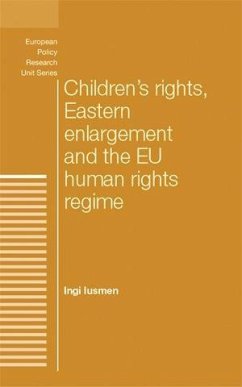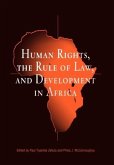This book offers a timely exploration of the nature and scale of the emergent EU human rights regime. It critically examines how intervention in Romania, as part of Eastern enlargement, has had an effect on the EU itself. By drawing on agenda-setting and historical institutionalist accounts, it demonstrates that these changes in children's rights policy have transformed the EU's role and scope in this area both inside and outside the Union. Eastern enlargement has raised the profile of Roma protection, international adoptions and mental health at the EU level. The impact of these developments has been further reinforced by the provisions included in the Lisbon Treaty, and together they have generated the emergence of a more robust and well-defined human rights regime in terms of its constitutional, legal and institutional powers. This book makes a substantial contribution to the scholarship on EU enlargement, Europeanisation and EU human rights policy by providing empirical evidence for the emergence and persistence of EU institutional and policy structures upholding human rights. It will prove invaluable to scholars in a range of subjects across politics and social sciences, and will also be useful to child and human rights practitioners, civil society organisations and particularly policy-makers interested in human rights in the EU.
Hinweis: Dieser Artikel kann nur an eine deutsche Lieferadresse ausgeliefert werden.
Hinweis: Dieser Artikel kann nur an eine deutsche Lieferadresse ausgeliefert werden.








